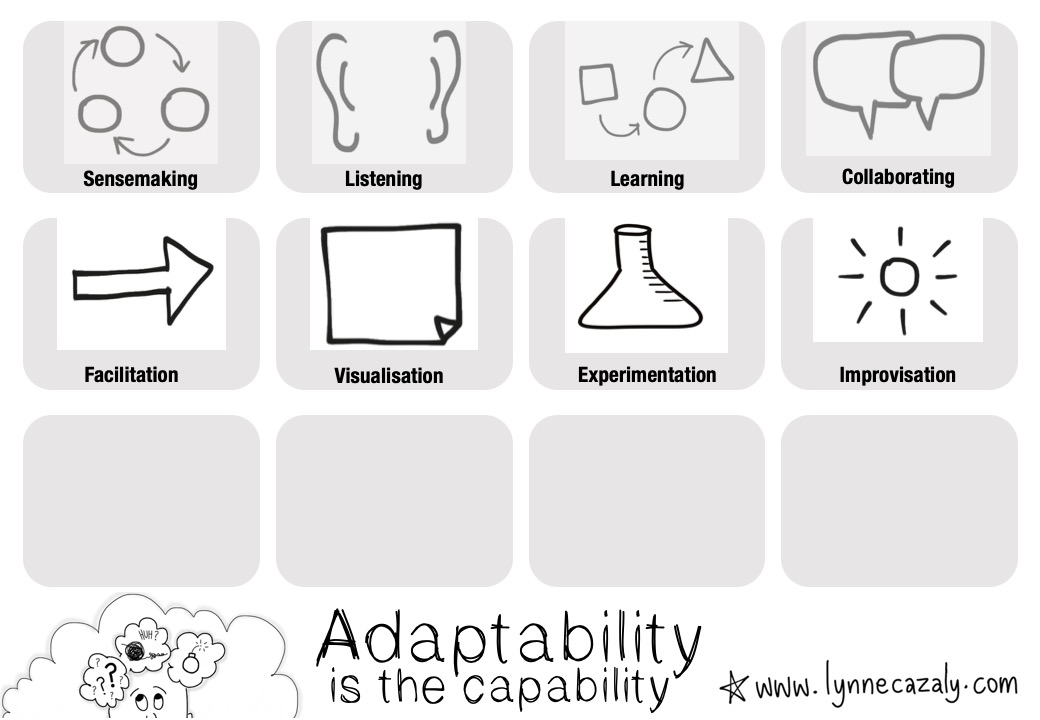Thinking Tools for Sensemaking
 Saturday, November 30, 2019 at 9:45AM
Saturday, November 30, 2019 at 9:45AM Sensemaking is our ability to understand the deeper meaning of what’s going on.
 In a crazy cray-cray world, with pressure to process vast amounts of information in lengthy meetings, we need to make sense as quickly as possible. But how? Do we sit around a meeting table, talking and listening as best we can?
In a crazy cray-cray world, with pressure to process vast amounts of information in lengthy meetings, we need to make sense as quickly as possible. But how? Do we sit around a meeting table, talking and listening as best we can?
Sadly, this is the default and gives us too much talk and not enough sense. You know, non-sense.
So do this instead: CLARIFY THE CONTEXT
Why are we doing this work? Set a big picture reason why and give people context. 'Context' is the setting, circumstances, the environment or situation. How many meetings start without time to focus on why the heck we are all there? Great mediators and conflict negotiators know if they can get high-level agreement at context, they’re part of the way to success. So ask and know: 'Why are we here? What are we trying to do?’ Big picture. Google Maps, Google Earth view, big big picture. Detail drillers? Not required right now.
Are you a big picture person or do you love details?





















